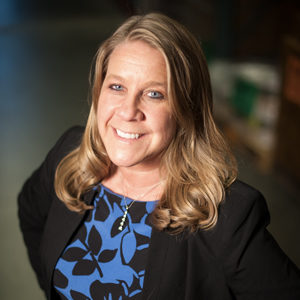


Lauren Sisneros is the founder of LS Consultants, LLC, a consulting firm that provides strategic advising and interim management support to nonprofit and education-focused organizations. A mission-driven leader with over 20 years of experience, Lauren brings a deep commitment to advancing equity across education, workforce development, and public policy.
With a keen understanding of complex systems and a results-oriented approach, Lauren partners with organizations to develop and implement strategies that are both effective and sustainable. Through LS Consultants, she delivers hands-on guidance in program management, board and stakeholder engagement, and leadership transitions, empowering mission-aligned teams to grow, adapt, and create lasting community impact.
Lauren has collaborated with a diverse portfolio of clients, including the Prosperity Denver Fund, Contractor Academy, Education Commission of the States, and Strong Start to Finish. Her work is grounded in a strong foundation of project management, nonprofit leadership, and policy analysis.
She holds a Bachelor’s degree in Business Administration from Colorado State University–Pueblo and a Master’s in Education from Colorado State University Global. Lauren is also a proud graduate of the University of Denver’s Latino Leadership Institute, a fellowship preparing Latino professionals for positions of influence across Colorado, and the Denver Metro Chamber Leadership Foundation’s Leadership Program, an 11-month civic leadership experience.
A Colorado native born and raised in the San Luis Valley, Lauren now lives in Lakewood, Colorado. She is a proud mother of two college students and a devoted grandmother who cherishes time with her family.
Throughout her career, Lauren has remained deeply dedicated to expanding access to opportunity, especially for underserved communities. Her work continues to center on shaping systems that are inclusive, community-driven, and equity-focused.
Kyle Christensen, M.P.A., is a program leader, facilitator, and trainer with more than 25 years of experience designing and delivering transformative learning experiences that advance leadership, civic engagement, and organizational change. He specializes in designing and evaluating leadership programs, facilitating team and organizational development, and guiding strategic planning processes that align purpose with measurable impact.
As founder of The Connected Leadership Project and consultant with Arrow Performance Group, Kyle partners with organizations such as the State of Colorado, CiviCO, and the University of Denver to design experiential leadership programs that build resilience, connection, and innovation. He also serves as program director for Leadership Veteran, an 8-month leadership initiative advancing the skills of professionals serving veteran communities.
Previously, Kyle directed Colorado State University Douglas County Extension, where he launched Colorado’s first Juntos 4-H program to expand pathways to higher education for Latinx youth and families. He also led the Family Leadership Training Institute of Colorado and has worked with institutions such as Peace Corps (Moldova), NYU Steinhardt, Centrul Educatia 2000+ (Romania), and the Council for Economic Education.
Kyle’s facilitation expertise is rooted in adult learning theory and supported by credentials such as Emergenetics, Strategic Doing, and Technology of Participation. He has led statewide and national trainings, peer learning cohorts, needs assessment processes, and community-centered planning efforts across government, nonprofit, and education sectors.
He holds an M.P.A. from New York University’s Wagner School of Public Service and a graduate certificate in Learning and Development from the University of Denver’s College of Professional Studies.
Kyle believes that the workplace should focus on continuous learning and growth, inclusive engagement, and creating a sense of belonging. “Why wouldn’t we hope for work environments that align with our values and our professional and personal growth aspirations?” He brings curiosity, compassion, and clarity to every engagement, and is most inspired when people find their voice, connect with others, and lead boldly in collective service.
Jason Pemberton is a multi-award winning facilitator, coach, independent executive board director, and strategist based in Denver, Colorado. Born in USA and raised in New Zealand, his entire career has been dedicated to Not-for-Profit and purpose-led organizations striving for high impact.
A series of catastrophic earthquakes in his home city of Christchurch, New Zealand, launched him into several years of disaster response, which, in turn, launched him into international consulting practice. He has worked in more than a dozen countries supporting companies, networks, and communities navigate through unexpected terrain for mutual benefit.
As a strategist and coach, he is pragmatic, direct, and clear, bringing his sharp mind and depth of thought to the fore whilst supporting groups to identify their own priorities and take charge of their future. His deep governance experience, coupled with professional training in positive psychology and related coaching accreditations, makes him highly effective at supporting teams of leaders and governors to find successful paths forward.
His time now is invested in supporting governance boards and senior leaders to succeed, and coaching technical experts and engineers on how to be skilled leaders of people.